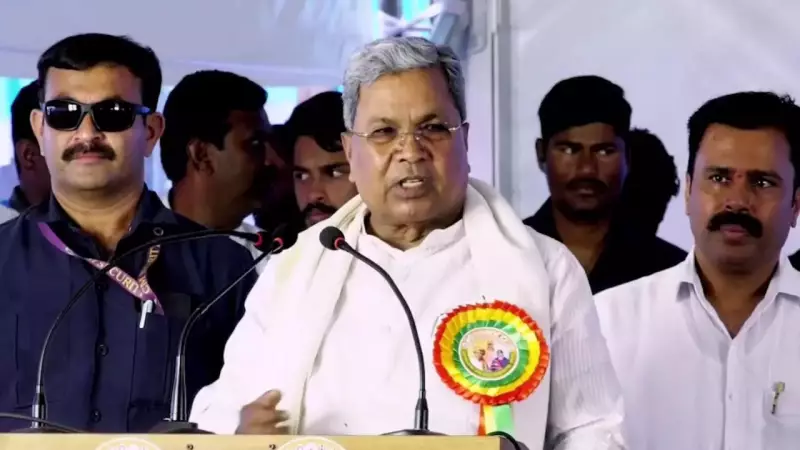
In a fiery statement that has reignited India's ongoing language debate, Karnataka Chief Minister Siddaramaiah has launched a sharp critique against what he calls the "forced imposition" of Hindi by the central government. The CM asserted that the dominance of both English and Hindi in education is actively harming children's innate talents and stunting the growth of regional languages.
The Core Accusation: A System Working Against Children
Siddaramaiah voiced his concerns during a recent event, highlighting a critical issue in India's educational landscape. He argued that the current system, which heavily emphasizes English and Hindi, fails to nurture a child's natural creativity and intellectual capabilities. Instead of fostering talent, he believes it creates an environment of linguistic pressure.
"When we impose a language, it hurts the talent of children," the Chief Minister stated emphatically. His comments directly challenge the central government's perceived push for a three-language formula that often places Hindi at its core.
Defending Kannada and Regional Identity
The controversy is deeply tied to the protection of Karnataka's linguistic heritage. The CM's remarks serve as a strong defense of Kannada, positioning it as a vital part of the state's cultural and educational fabric. He accused the Centre of undermining this identity by promoting Hindi above regional languages.
This stance is not new to Karnataka politics but has gained fresh momentum. The state has historically resisted what many see as linguistic hegemony from the north, advocating for a more pluralistic approach to India's diverse language ecosystem.
What This Means for Education Policy
- Pressure on Students: The CM's argument suggests that children are burdened by having to achieve fluency in multiple non-native languages from a young age.
- Stifled Creativity: The focus on linguistic mastery, he implies, comes at the cost of developing other critical thinking and creative skills.
- Threat to Regional Languages: The increased focus on Hindi and English is seen as marginalizing Kannada in its own homeland, potentially affecting its long-term vitality.
A National Debate Rekindled
This incident throws a national spotlight back on the sensitive and often polarizing issue of language policy in India. The southern states, in particular, have consistently pushed back against the idea of Hindi being a national language, advocating instead for the continued prominence of English as a neutral link language.
Siddaramaiah's comments are likely to resonate beyond Karnataka's borders, finding support in other non-Hindi speaking states that share similar concerns about cultural and linguistic preservation in the face of centralized language planning.





